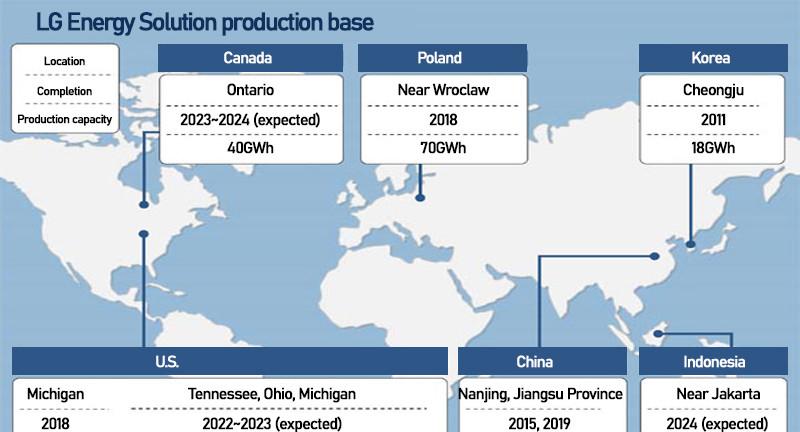According to the South Korean media "Maeil Business Newspaper", sources revealed that South Korean battery manufacturer LG Energy Solution (LGES) is in discussions with Japan's Honda Motor Company to establish a battery joint venture in the United States.
LGES, which plans to launch trading on a South Korean exchange on Jan. 27, is expected to raise nearly $11 billion, making it the largest IPO in South Korea's history. Kwon Young-soo, vice president of LG Group and chief executive of LGES, revealed at a bookkeeping meeting on Monday that the company will soon announce a joint venture with a car company.
According to sources, LGES's battery joint venture with Honda could invest as much as 4 trillion won (about $3.4 billion) and the factory capacity could reach 40 gigawatt hours (GWh) to power 600,000 high-performance electric vehicles. But the specific timeline, location and details of capacity have yet to be decided.
Rare alliances
If the news is true, it will be a rare case of a Japanese-Korean alliance. At present, the bilateral relationship between Japan and South Korea is still deteriorating due to some historical problems, and given the closed nature of Japanese companies, the proposal for cooperation with Honda is surprising.
But the deal is not without a trace. One of the more obvious reasons is that the joint venture's plant is said to be ready to support Honda's new U.S.-built vehicles from 2024, while the U.S.-Mexico-Canada Agreement (USMCA), which requires 75 percent of auto parts to be manufactured in North America, will go into effect in 2025.

In addition, Honda recently officially announced that it will launch two large pure electric vehicles for the U.S. market in 2024, both of which will be equipped with GM's latest Ultium battery pack, which is manufactured by Ultium Cells, a joint venture between LGES and General Motors. This makes the relationship between the three companies in North America even closer.
Another reason is that Japanese battery manufacturers have fallen behind in competition with Chinese and Korean companies. According to market research firm SNE Research, CATL's production capacity reached 67.1 GWh from January to November last year, an increase of 237.6% year-on-year, accounting for 29% of the global market share, while LGES reached 51.3 GWh in the same period, accounting for 22.2% of the market share.
Through the production portfolio and advanced technology, LGES and CATL have gained a global leading position and gradually formed an oligopoly in the market. For LGES, the establishment of joint ventures with other car companies to share manufacturing costs and ensure stable supply can play a positive role in the company's long-term development. For Honda, having a battery supplier from the "first echelon" has greatly helped the electrification of the car.
Kim Pil-soo, a professor at Daelim University in South Korea, observed that the joint venture is a win-win structure that can drive the electrification transformation of automakers and also provide a stable supply for the sustainable growth of battery manufacturers. While Honda motor did not comment, CEO Toshihiro Mibe said last year that it was willing to form new alliances with other companies for electrification.
Blockbuster IPO
For LGES, the news with Honda will be a positive for its IPO at the end of the month.
According to Bloomberg, LGES is likely to price its stock at the top of the range and will raise as much as $10.7 billion, which is bound to become the largest IPO in South Korea and the second largest IPO in the world after Rivian ($13.7 billion) in nearly a year.
Currently, the largest IPO issued in South Korea is Samsung Life Insurance Company, which raised $4.3 billion in 2010, and LGES will be listed 2.5 times the size of the deal.